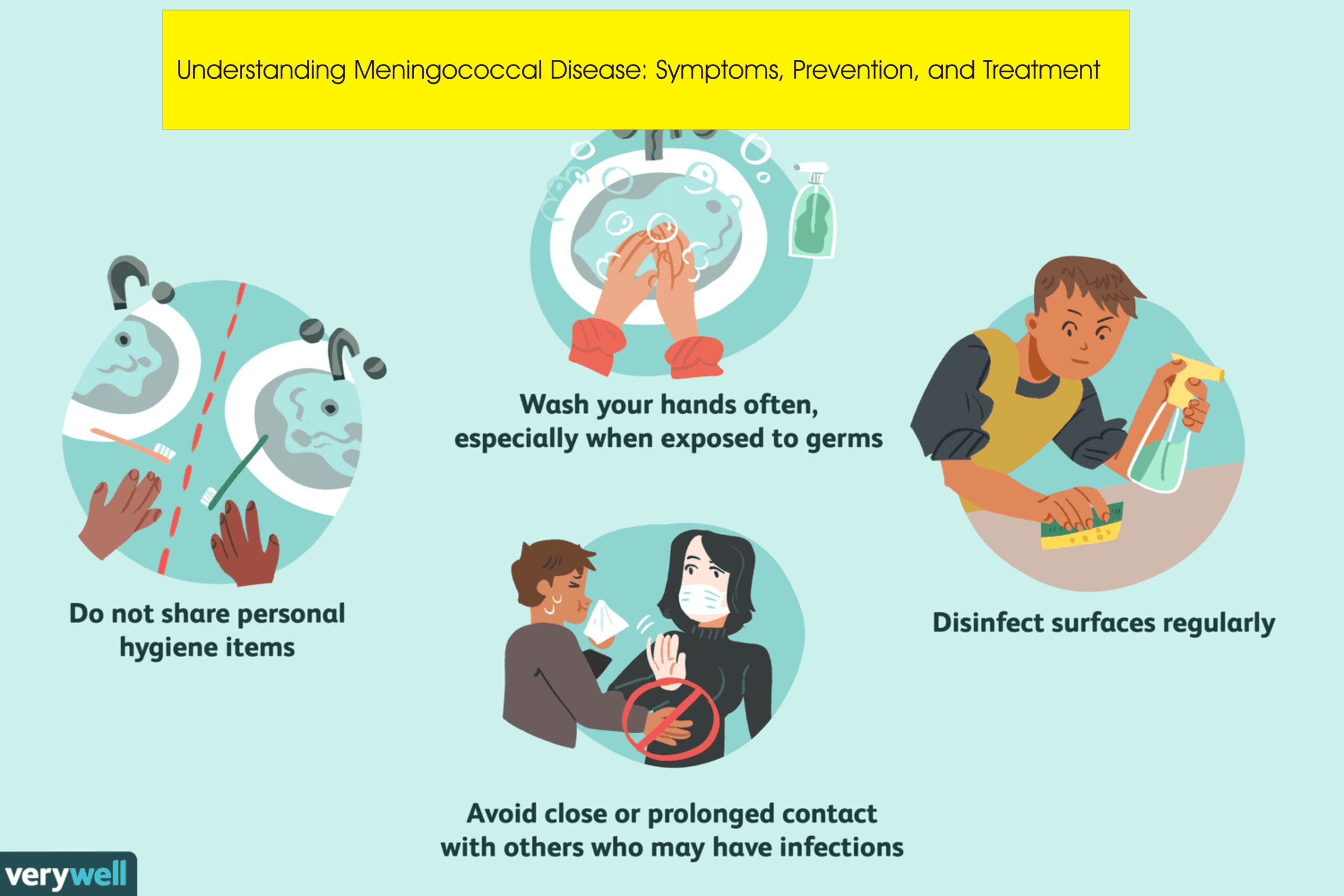Meningococcal disease, often referred to simply as meningitis, is a serious and potentially life-threatening illness caused by the bacterium Neisseria meningitidis. This bacterium can lead to severe inflammation of the meninges, the protective membranes surrounding the brain and spinal cord. Understanding the signs, symptoms, prevention, and treatment of this disease is crucial for public health awareness and individual well-being.
The Menace of Meningococcal Disease
Meningococcal disease is primarily transmitted through respiratory droplets and close person-to-person contact. Crowded living conditions, such as college dormitories or military barracks, can facilitate its spread. It can also occur sporadically and in outbreaks, especially in communities with lower vaccination rates.
Symptoms and Identification
The early symptoms of meningococcal disease can resemble those of a common cold or flu, making it challenging to diagnose in its initial stages. Symptoms may include:
- High fever
- Severe headache
- Stiff neck
- Nausea and vomiting
- Confusion or altered mental status
- Sensitivity to light
- Joint and muscle pain
- Skin rash (in later stages)
Early identification and prompt treatment are vital to prevent complications and fatalities associated with the disease.
Prevention through Vaccination
Vaccination is a key preventive measure against meningococcal disease. Several types of meningococcal vaccines are available, targeting different strains of the bacteria. These vaccines provide protection against some of the most common types of Neisseria meningitidis, including A, B, C, W, and Y. Immunization is especially important for adolescents, college students, military recruits, travelers to certain regions, and individuals with certain medical conditions.
Types of Meningococcal Vaccines
- Meningococcal conjugate vaccines: Protect against types A, C, W, and Y.
- Meningococcal B vaccines: Target the B strain of the bacteria.
- Booster doses: Ensuring long-term protection, especially for those at increased risk.
Treatment and Management
Early diagnosis and timely treatment are crucial for a successful recovery from meningococcal disease. Antibiotics are the primary mode of treatment, administered intravenously. Hospitalization may be necessary for monitoring and supportive care, especially in severe cases or when complications arise.
Potential Complications
Meningococcal disease can lead to severe complications, including:
- Septicemia (bloodstream infection)
- Meningitis
- Organ damage
- Amputations
- Death
Conclusion
Meningococcal disease is a serious health concern that necessitates awareness, preventive measures, and timely medical intervention. Public education regarding the signs and symptoms, importance of vaccination, and early medical attention is crucial in reducing the incidence and impact of this potentially fatal disease. Vaccination campaigns and health initiatives are essential tools in the fight against meningococcal disease, ultimately contributing to a healthier and safer global community.
Understanding Meningococcal Disease: Symptoms, Prevention, and Treatment
Meningococcal disease, also known as meningitis, is a grave bacterial infection that can cause inflammation of the protective membranes surrounding the brain and spinal cord. This infectious disease is caused by the bacterium Neisseria meningitidis. The impact of meningococcal disease can be devastating, making it essential to comprehend its symptoms, prevention strategies, and available treatments.
The Menace of Meningococcal Disease
The transmission of meningococcal disease occurs through respiratory droplets and close contact with an infected person. Crowded living spaces, like dormitories and military barracks, facilitate its spread, making awareness and prevention vital in such environments. Additionally, outbreaks can occur in communities with low vaccination rates, highlighting the importance of widespread immunization campaigns.
Symptoms and Identification
Identifying meningococcal disease in its early stages can be challenging due to its initial flu-like symptoms. These can include:
- Fever: Often high and sudden.
- Headache: Intense and persistent.
- Neck stiffness: Difficulty in moving the neck due to meningeal inflammation.
- Nausea and vomiting: Especially in conjunction with severe headache.
- Altered mental status: Confusion, irritability, or disorientation.
- Sensitivity to light: Photophobia, discomfort in bright light.
- Muscle and joint pain: Aches and pains throughout the body.
- Skin rash: May appear as small, reddish-purple spots or bruises. In advanced cases, this rash can progress rapidly and become life-threatening.
Prevention through Vaccination
Vaccination against meningococcal disease is the cornerstone of prevention. It is recommended, especially for individuals at higher risk, including adolescents, college students, military recruits, travelers to endemic regions, and those with specific medical conditions. Vaccines against meningococcal disease fall into two main categories:
Types of Meningococcal Vaccines
- Meningococcal conjugate vaccines: Guard against types A, C, W, and Y, offering long-lasting immunity.
- Meningococcal B vaccines: Protect against the B strain of the bacterium, offering significant advancements in preventing the disease.
Regular booster doses may be necessary to maintain continued protection against meningococcal disease, emphasizing the importance of following vaccination schedules.
Treatment and Management
Early detection and immediate treatment are critical in managing meningococcal disease. The primary mode of treatment involves administering antibiotics, often through intravenous means. Hospitalization is typically required for close monitoring and supportive care, particularly in severe cases or when complications such as septicemia or meningitis arise.
Potential Complications
Meningococcal disease can lead to severe complications, including:
- Septicemia (bloodstream infection): Potentially life-threatening.
- Meningitis: Inflammation of the protective membranes surrounding the brain and spinal cord.
- Organ damage: Such as kidney failure or respiratory problems.
- Amputations: In extreme cases where the infection causes severe tissue damage.
- Death: Mortality rates can be high, underscoring the seriousness of this disease.
Conclusion
Meningococcal disease is a formidable health threat, necessitating increased awareness, vaccination, and early medical intervention. Public education about symptoms, the importance of vaccination, and seeking prompt medical attention is vital in reducing the prevalence and impact of this potentially lethal disease. Robust vaccination campaigns and community health initiatives are essential tools in the fight against meningococcal disease, ultimately contributing to a healthier and safer global society. Stay informed, vaccinated, and vigilant to protect yourself and your community against this serious health risk.
